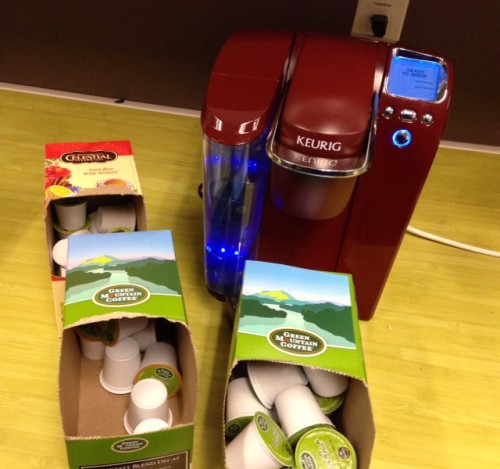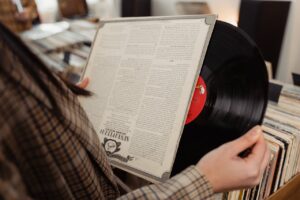Pod-based coffee machines are exploding in popularity. At the same time, environmentalists have expressed deep concerns that coffee grounds in a plastic pod are bad for the earth.
Now, John Sylvan, who came up with the idea now known as K-Cups, has some regrets. ““I feel bad sometimes that I ever did it,” Sylvan says in an interview in The Atlantic.
Last year, according to the magazine, K-Cups accounted for most of Keurig Green Mountain’s $4.7 billion in revenue—more than five times what the company made in 2009. Sylvan himself isn’t getting rich on the K-Cup surge: he sold his share of the company in 1997 for $50,000.
He actually doesn’t own a Keurig brewing machine and he doesn’t use K-Cups, which contain about two tablespoons full of coffee ground encased in a plastic cup and covered with an aluminum lid. “They’re kind of expensive to use,” Sylvan said. “It’s not like drip coffee is hard to make.”
K-Cups and Keurig brewers are one of the food industry’s major success stories of the past decade. And, the growth hasn’t stopped. According to The Atlantic, Keurig and Coca-Cola are about to embark on a partnership called Keurig Cold, which takes Keurig a step closer to its desire to offer a beverage for every occasion.
Given the rapid expansion of Keurig brewers, it’s kind of surprising that nobody has come up with an environmentally friendly, or friendlier version of the brewing devices. After all, with each cup containing about 11 grams of coffee, that works out to a staggering $40 a pound.
There are some K-Cup inserts that can be filled with coffee grounds. And, I’ve figured out how to take my K-Cups apart after I’ve brewed a cup. I use the grounds in my garden. But it’s time consuming to do so, and many people wouldn’t bother. They just throw their cups away.
Various estimates say that between 10 million and 14 million K-Cups are thrown away each year. K-Cup backlash has led to a widely watched video, Kill The K-Cup, and there’s a petition at KillTheKCup.org asking the company to improve its product. It has vowed to come up with a recyclable K-Cup by 2020.
The anti K-Cup movement is overshadowing what proponents say are benefits of K-Cups. For instance, once a cup of coffee is brewed, the machine shuts off, versus a coffee maker that keeps a pot warm. The K-Cups deliver exactly how much coffee is needed to make one cup, eliminating the waste that often takes place with other types of brewing machine.
K-Cups also are easy for senior citizens to use, and they’re a relatively safe way for children to make themselves a cup of hot chocolate.
Still, says The Atlantic, “If pod backlash continues at its current pace, it does seem that the company will need to quickly innovate, ally, or be displaced.”











